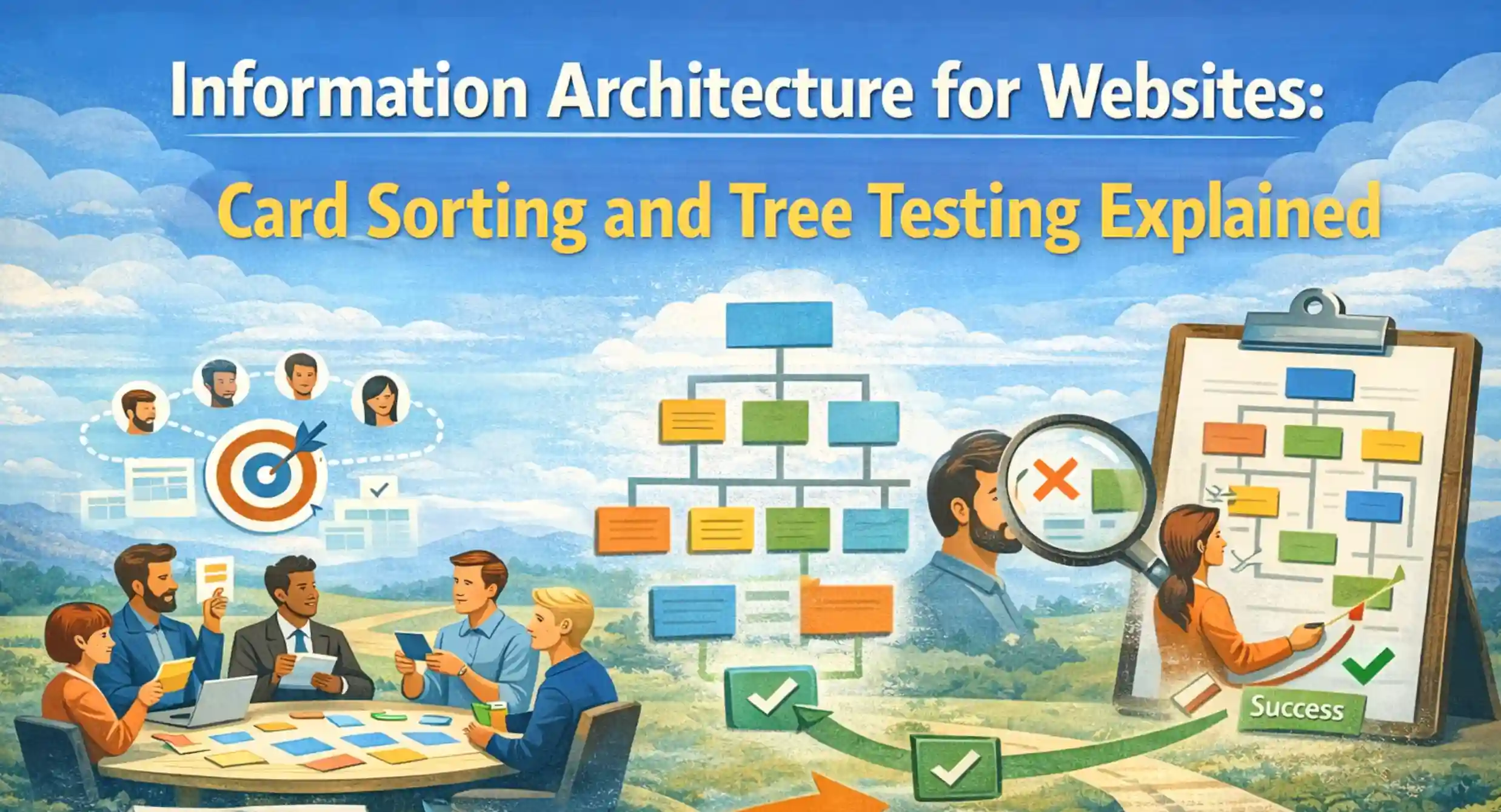What is Branding: Branding Explained - Everything You Need to Know to Build a Powerful Brand
Updated on
Published on

Branding is far more than just a memorable logo or a clever slogan—it’s the strategic core of how an organization expresses its identity, interacts with audiences, and defines its place in the market. When executed well, branding fuels trust, loyalty, and emotional resonance that can outlast competition or industry shifts. When executed poorly, it fosters confusion, undermines credibility, and leaves businesses stuck chasing short-term fixes. Below is a thorough dive into brand strategy fundamentals, referencing notable authors and their seminal works, plus links to more focused discussions on mission statements, tone and voice, and other branding essentials.
The Difference Between Brand and Branding
Though often used interchangeably, brand and branding are distinct concepts that play different roles in shaping a company’s identity and reputation.
Brand refers to the perception, reputation, and emotional connection that consumers have with a company, product, or service. It’s how people feel about and recognize a business. A brand includes elements like the company’s name, mission, values, personality, and overall customer experience.

Branding, on the other hand, is the active process of creating, developing, and maintaining that brand. It includes the visual identity, feel, messaging, marketing strategies, and brand positioning that help shape consumer perception.

Why Brand Strategy Matters
Brand strategy is the overarching plan that shapes how people perceive your organization. Marty Neumeier, in The Brand Gap, emphasizes that a brand isn’t merely visual identity; it’s the collective impression customers have based on every interaction they experience—marketing campaigns, store visits, social media posts, even word-of-mouth from friends. Without a guiding strategy, efforts to develop design assets, craft taglines, or sponsor events often appear fragmented, preventing the brand from forming a cohesive identity. On the other hand, a robust strategy weaves consistent messaging and visual cues across all channels, so customers know exactly what you stand for and why they should care.

Foundations: Mission Statement and Core Values
A key starting point in branding is clarifying why your organization exists. Simon Sinek’s Start with Why explains that people gravitate toward companies whose purpose resonates with their own beliefs or needs. Formalizing this in a mission statement provides a compass for decision-making—everything from product development to HR policies can align with that core purpose. For deeper insights, check out our blog post on writing a mission statement, detailing how to ensure each statement is specific, genuine, and aligned with real-world outcomes.
Core values build on the mission statement by elaborating the principles that guide behavior. These values shape the internal culture, influencing how teams collaborate and how leadership prioritizes projects. A brand committed to sustainability, for example, won’t just market eco-friendly messages but will also select green suppliers and optimize packaging to reduce environmental impact. This will become a main part of their braiding and this internal-external consistency cements brand authenticity.
Understanding Your Audience and the Competition
David Aaker emphasizes the necessity of customer-centric insights when it comes to branding in Building Strong Brands underscores the necessity of customer-centric insights when it comes to branding. Segment your audience to uncover motivations, pain points, and emotional triggers. If you discover, for instance, that millennials prioritize convenience and personalization, tailor your brand experience accordingly—like offering easy mobile checkouts and curated product recommendations.
Likewise, thoroughly analyze your competition to find gaps where your brand can differentiate. Maybe your rivals concentrate on functionality, leaving room for you to highlight lifestyle appeal. Or perhaps they use formal communication, which opens the door for a more casual, relatable brand tone. By zeroing in on customer pain points and competitor weaknesses, you can pinpoint a unique brand promise that stands out in a cluttered market.
Brand Architecture and Hierarchy
For organizations juggling multiple products, lines, or sub-brands, brand architecture ensures cohesion. Wally Olins, a branding pioneer, often discussed how your structure—be it a monolithic “one brand” system or a “house of brands”—can clarify or complicate the consumer journey. Monolithic setups (e.g., Apple’s unified naming convention: iPhone, iPad, Apple Watch) leverage a strong corporate brand across offerings. A “house of brands” (like Procter & Gamble with Tide, Crest, Pampers) provides each product line its own identity, reducing the risk of cross-contamination if one fails but missing out on corporate brand synergy. Your choice depends on your growth strategy, consumer expectations, and brand equity. The key is a logical hierarchy that helps customers navigate your range of products without confusion.

Creating a Distinct Brand Identity
Brand identity—goes deeper than just “logo design”— it encompasses visual and verbal elements that consistently convey your brand’s essence. This includes:
- Visual Design: Color palettes, typefaces, and iconography that evoke your intended brand personality. A tech startup might adopt bold, modern fonts and bright accent colors, while a heritage fashion label might prefer refined serif typefaces and understated palettes.
- Tone and Voice: The linguistic style you use in written and spoken communication. Refer to our in-depth tone and voice guidelines (link to your relevant post) for examples. A brand aiming for irreverence, like Wendy’s on Twitter, employs sassy comebacks. In contrast, IBM uses measured, informative language that underscores reliability and expertise.

When design and voice align, every touchpoint—from website copy to packaging—feels consistent. Check out our favourite branding trends of 2025 and why they work and respond well with this year’s audience.
Brand Personality and Emotional Resonance
Beyond functional benefits, branding can embody personality traits, a concept introduced by Jennifer Aaker in her “dimensions of brand personality”—sincerity, excitement, competence, sophistication, and ruggedness. By identifying which traits to highlight, you guide how your brand looks, sounds, and acts.
Sincerity: A sincere brand has a warm, honest, and approachable personality, making customers feel valued and emotionally connected.
Excitement: Exciting brands have a playful, energetic, and daring personality, drawing in thrill-seekers who crave novelty and fun.
Competence: A competent brand feels reliable, knowledgeable, and authoritative, appealing to those who seek expertise and trustworthiness.
Sophistication: Sophisticated brands exude elegance, exclusivity, and refinement, attracting consumers who value prestige and high-end experiences.
Ruggedness: Rugged brands project strength, resilience, and adventure, resonating with those who embrace challenges and an active lifestyle.
Ultimately, brand personality shapes how consumers feel when they interact with you. It dictates the tone of your social media updates, the vibe of your retail spaces, and even the style of product photography.

Consistency is Key
As Marty Neumeier stresses, “A brand is a person’s gut feeling about a product or service.” That feeling thrives on consistency. Inconsistent design templates, conflicting marketing campaigns, or contradictory brand promises sabotage trust. Conversely, when a brand consistently embodies its values and identity across all channels—packaging, email newsletters, store ambiance—consumers develop loyalty and preference. They know what they’ll get with each purchase, which fosters comfort and emotional connection.
To maintain consistency, develop brand guidelines that detail:
- Logo usage: Clear do’s and don’ts for size, spacing, and color variations.
- Color codes: Exact HEX or Pantone references to prevent drift over time.
- Editorial standards: Spelling conventions, sentence style, and brand vocabulary.
- Image guidelines: Criteria for photography, illustration style, or visual motifs.
Ensure everyone from your PR agency to your in-house team references these guidelines regularly. Some companies even run brand audits to confirm that new materials align with these standards, avoiding brand drift.
Storytelling and Emotional Differentiation
Brands often succeed by articulating compelling stories rather than listing product features. Warby Parker, for instance, soared in popularity partly by highlighting its buy-one-give-one charitable mission and disrupt-the-industry narrative. Tesla shares Elon Musk’s vision of a sustainable future, captivating audiences and overshadowing traditional automakers. Tying brand strategy to a broader cause or a founder’s journey resonates deeply with modern consumers who crave authenticity.
Simon Sinek’s central premise—“People don’t buy what you do; they buy why you do it”—comes alive here. A brand story that unveils your motivations, struggles, and values can hook people’s emotions. Whether you champion small artisans, emphasize local manufacturing, or expand educational access for underserved communities, show how these initiatives link back to your brand identity. Storytelling fosters human empathy. Consumers don’t just see a product; they see an ongoing narrative they can be part of.

Digital Channels: From Social Media to UX
In a world dominated by digital touchpoints, brand consistency must also thread through your website, social media channels, email campaigns, and e-commerce platforms. Each environment accentuates certain brand aspects:
- Website: Your digital “headquarters” for brand expression. A streamlined, intuitive UX design tells visitors you’re user-focused, while a cluttered or slow site might signal negligence.
- Social Media: Tailor your brand personality to each platform’s culture. LinkedIn might highlight thought leadership; TikTok offers playfulness. Just keep your core identity intact.
- Influencer Partnerships: Collaborations should feel authentic. If an influencer’s persona conflicts with your brand’s values, consumers will spot the mismatch.
- E-mail Marketing: Maintain brand voice in subject lines and content. Are you witty? Reassuring? Formal? Keep it consistent.
In the digital realm, brand messages can spread far and fast, but slip-ups also become magnified. If you claim to be environmentally conscious while shipping orders in wasteful packaging, negative feedback may go viral. Hence, brand commitments need operational follow-through.
Building Brand Communities
Strong branding fosters not just customers but active communities of supporters. Apple’s fan base practically evangelizes every product release. Nike’s social media fosters collective ambition around sports achievements. Online forums, ambassador programs, and user-generated content campaigns can galvanize people. Some brands create IRL events or local meetups—think of how craft breweries host tasting nights or sponsor community runs. This interplay of online and offline gatherings transforms a brand from a mere transaction into a shared identity or lifestyle. Check out our post on community-building tactics (link to relevant blog) for practical steps to cultivate engaged brand advocates.
Managing Brand Equity
David Aaker describes brand equity as the intangible value derived from brand recognition, loyalty, perceived quality, and associations. When brand equity is high, customers are more tolerant of product hiccups, more willing to pay premium prices, and more eager to try new offerings. To nourish equity, you must consistently deliver on promises, adapt to evolving market needs without betraying brand values, and invest in marketing that reaffirms your brand identity. Brands like LEGO have deftly expanded beyond toy bricks to digital games and worlds because their underlying brand equity—creativity, imagination, quality—resonates universally. Meanwhile, brands that stray from their essence (e.g., a fast-food chain releasing a poorly tested health product) risk damaging credibility.
Pulling It All Together
Branding is less a one-time project and more an ongoing ethos. As you construct or refine your brand, remember the interplay of each component:
- Mission Statement: Your reason for existing as a brand, informing decisions and uniting stakeholders around a common cause.
- Target Audience & Competitor Insight: Empathy for user pains plus clarity on the competitive field reveals unique positioning.
- Identity & Voice: Symbols, colors, typography, tone, and messaging unify the brand’s external face.
- Personality & Emotional Hooks: Tapping into sincerity, excitement, or sophistication yields deeper relationships than functional attributes alone.
- Consistency & Storytelling: Repeatedly delivering cohesive experiences—packaged in narratives that celebrate your brand’s why—builds familiarity and loyalty.
- Communities & Digital Engagement: Encouraging participation transforms loyal customers into brand ambassadors—online or offline.
- Equity & Longevity: Sustain brand value by staying authentic, consistently innovating, and meeting (or exceeding) customer expectations.
Organizations that sync all these elements gain more than just ephemeral sales spikes. They establish a legacy where every new product, new marketing campaign, or new store opening naturally embodies the brand’s essence. Over time, brand equity compounds as people share positive experiences and form emotional ties—like family traditions or personal milestones associated with the brand.
For deeper dives into each stage, explore our blog archives on mission statements, tone and voice guidelines, or community-building strategies. The ultimate lesson, echoed by brand experts from Marty Neumeier to Wally Olins, is that brand success hinges on authenticity, alignment, and a willingness to keep refining. Brand strategy is never truly finished; it’s an evolving conversation with your audience, shaped by cultural shifts, market dynamics, and your own organizational growth. The brands that stand the test of time do so by staying true to their core purpose while dexterously flexing to meet new challenges.
By seeing branding as an art, a science, and a shared aspiration, you’ll craft a powerful identity that resonates well beyond a single logo or slogan. Instead, you’ll forge a magnetic presence—one that clients, employees, and wider communities want to rally behind. And in today’s crowded, fast-paced marketplace, that kind of enduring emotional connection is worth more than any ad campaign or product gimmick could achieve.

.webp)







